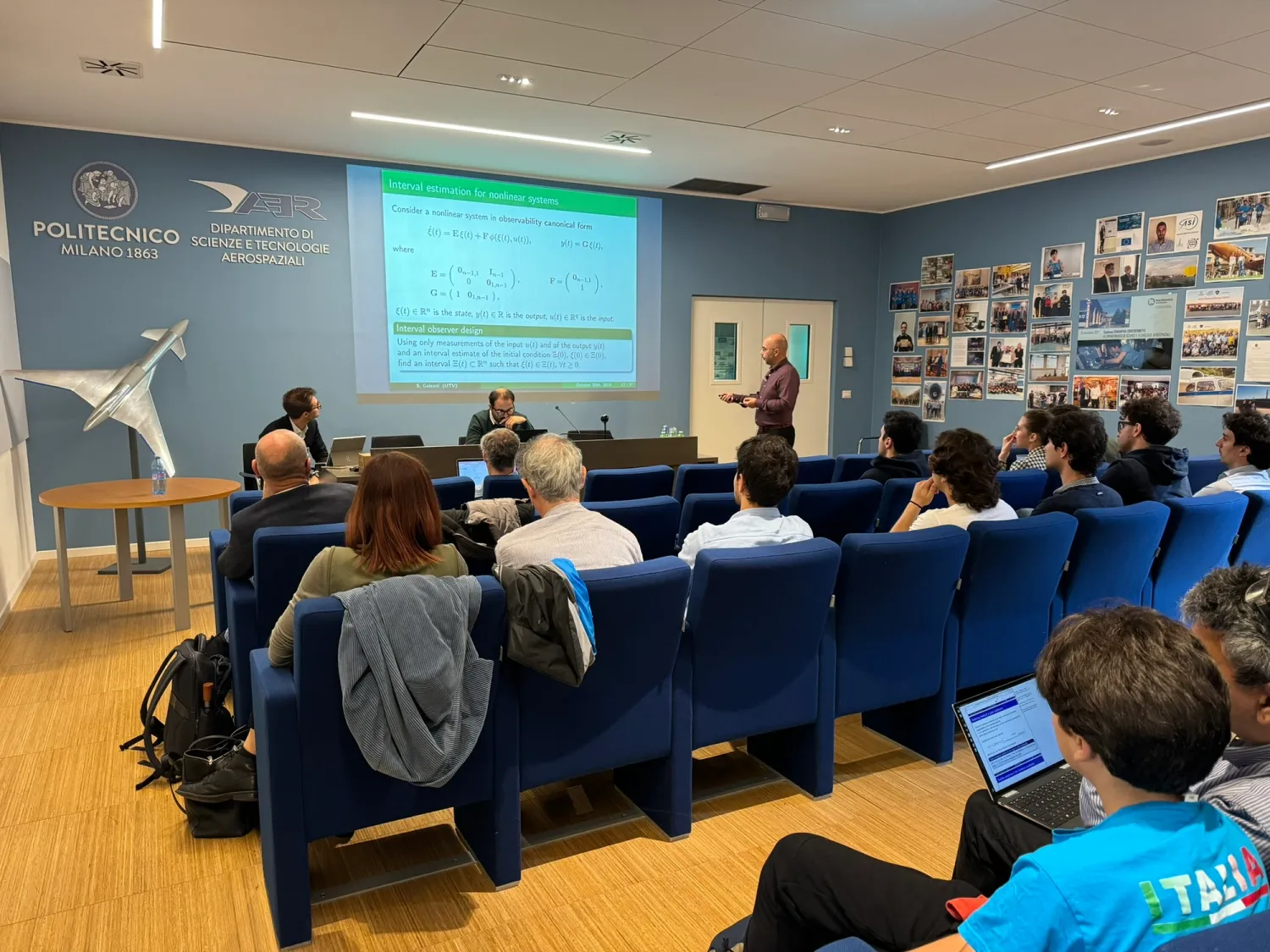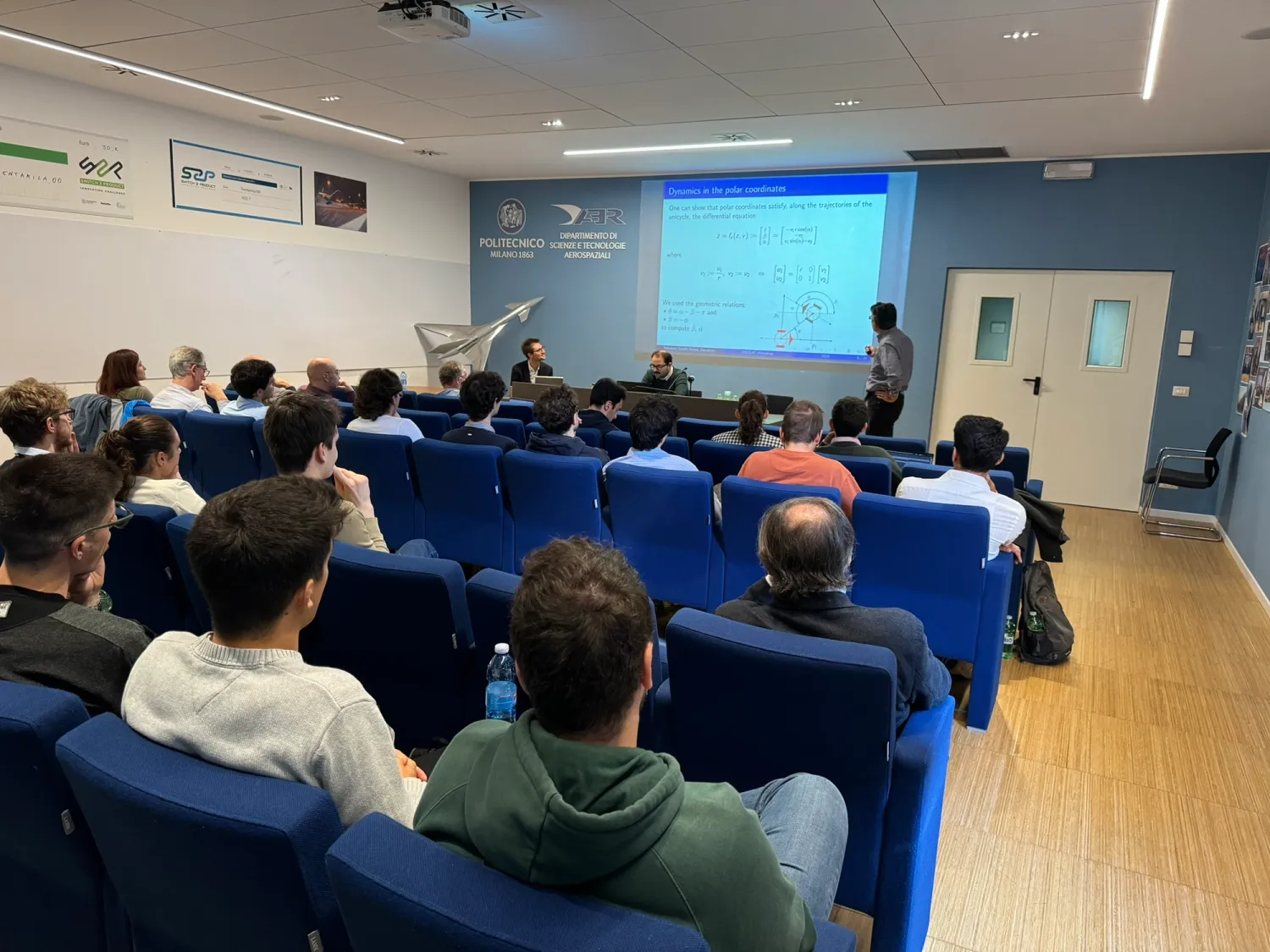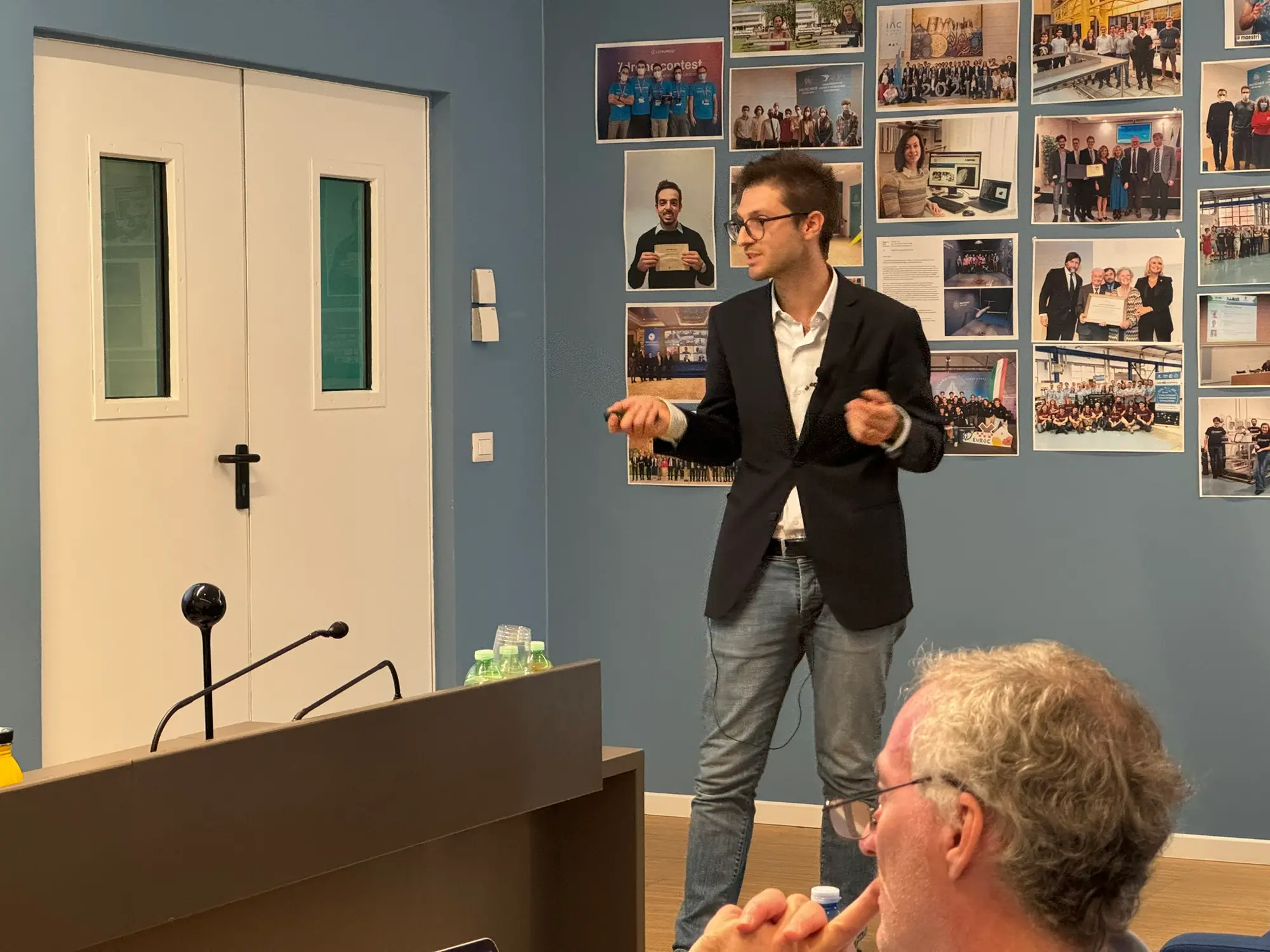DESIGN OF COOPERATIVE ENERGY-AWARE AERIAL PLATFORMS FOR REMOTE AND CONTACT-AWARE OPERATIONS (DOCEAT)
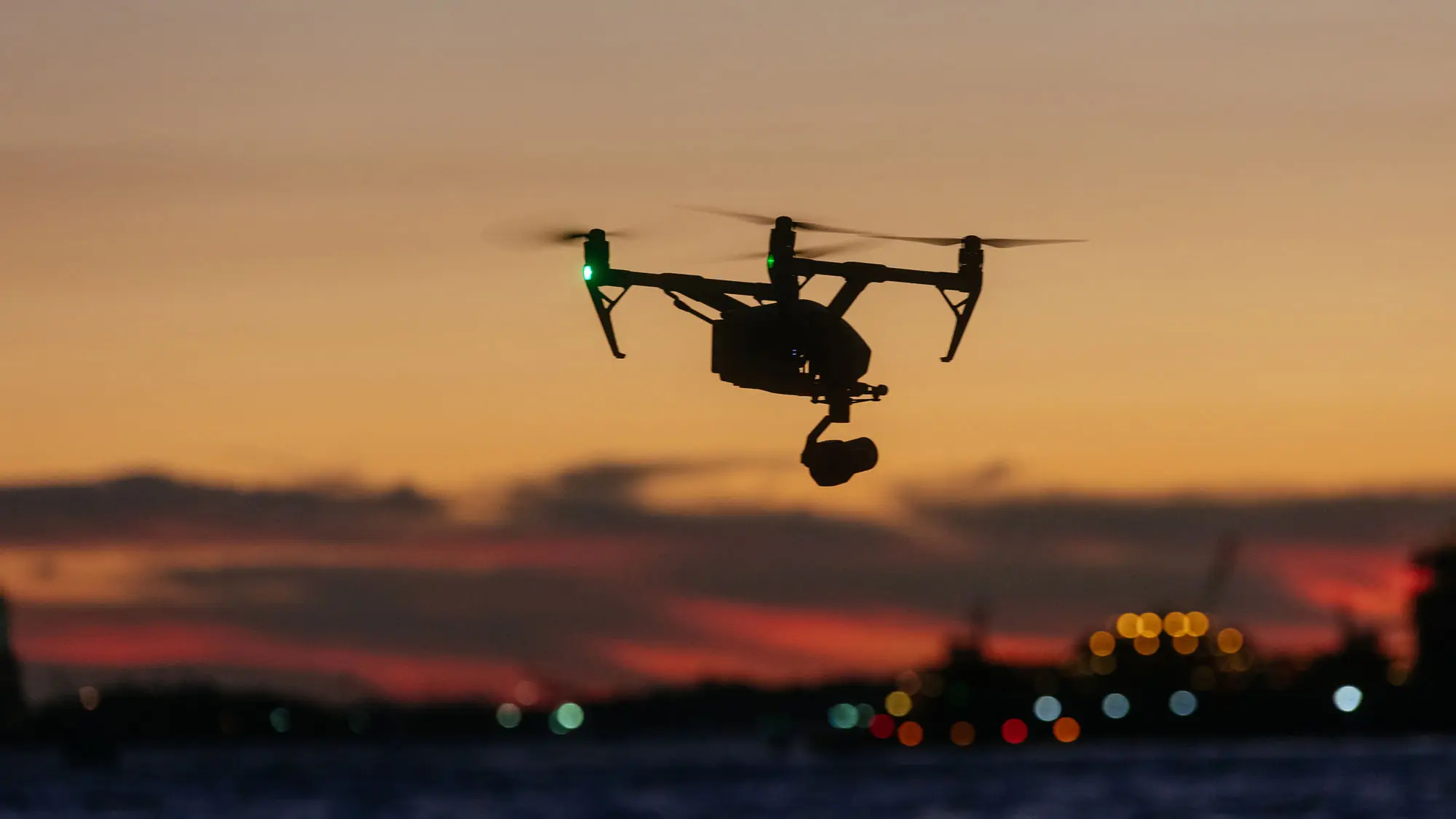
Workshop
October 30th, 2024, 9.00 – 12.45
Politecnico di Milano, Building B12, Department of Aerospace Science and Technology, 2nd floor, Sala Consiglio, Via La Masa, 34 – 20156 Milano (Italy)
Event registration link (max 40 attendees in presence)
Youtube streaming channel www.youtube.com/@aerospacepolimi
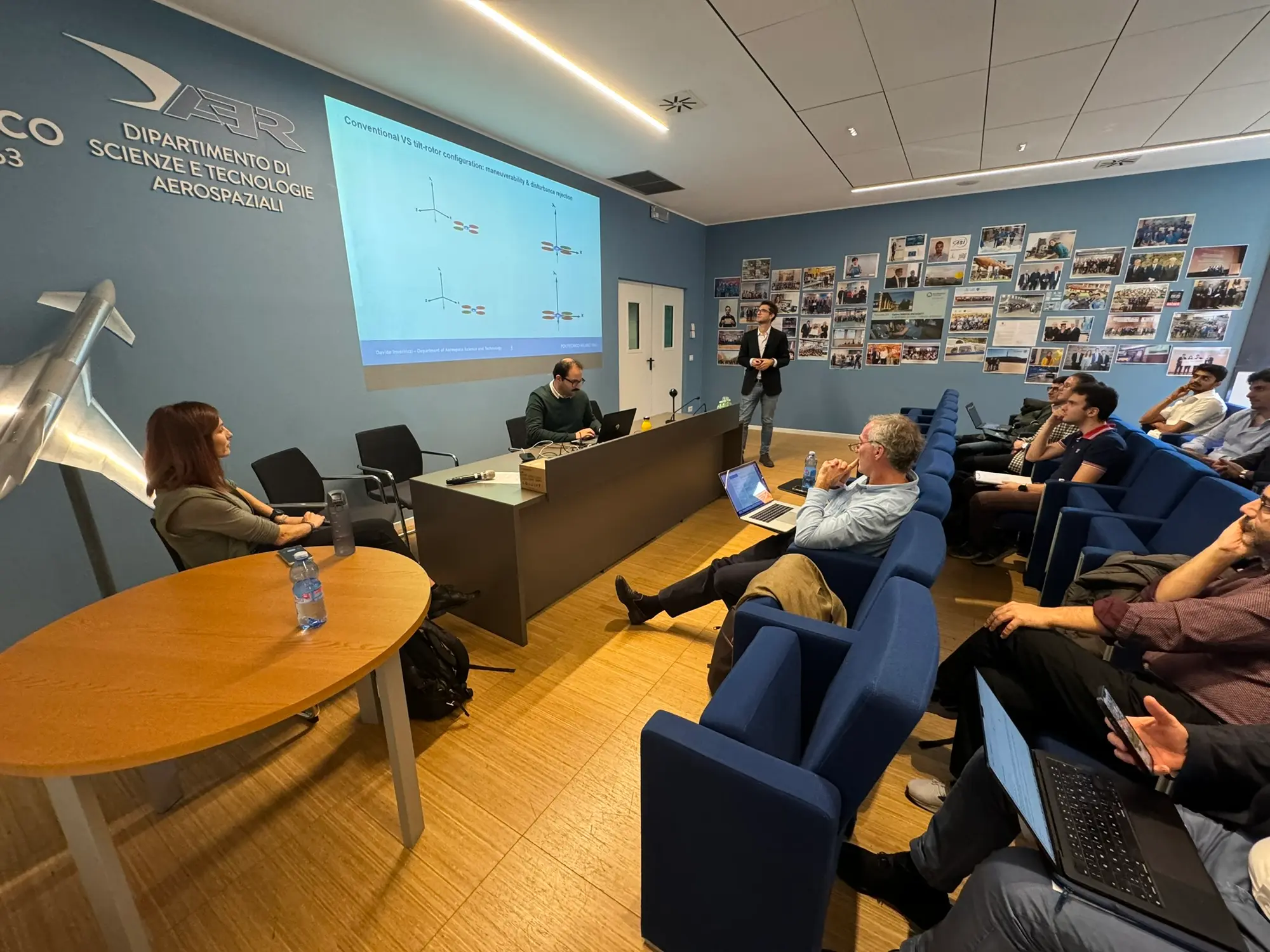
The DOCEAT project, funded by the Italian MUR in the framework of the 2020 Program for Research Projects of National Interest (PRIN), focuses on the development of cooperative, energy-efficient aerial platforms for complex operational environments.
The DOCEAT team is composed of five research units with complementary expertise: University of Rome "Tor Vergata", University of Padova, Politecnico di Milano, University of Bologna and University of Trento.
This workshop will present the latest advancements and methodologies developed within the project through five talks, highlighting innovative approaches to UAV control, localization, and platform design.
AGENDA:
09:00 – Welcome Coffee
09:30 – Welcome remarks (M. Lovera, Politecnico di Milano) and introduction to the DOCEAT project (A. Astolfi, University of Rome Tor Vergata and Imperial College London)
09:45 – first part of presentations
1. “Control and observer design tools for UAV fleet”, Sergio Galeani (University of Roma Tor Vergata)
2. “Orchestrating Front and Rear Sensors for Hybrid Robust Stabilization of Unicycles”, Luca Zaccarian (University of Trento and LAAS-CNRS (France)
3. “Bearing-based Target Localisation in Search and Rescue Scenarios”, Nicola Mimmo (University of Bologna)
11:15 – Coffee break
11:30 – second part of presentations
4. “Star-shaped Tilted Hexarotor Maneuverability: The Role of Tilt Angles”, Giulia Michieletto (University of Padova).
5. “Adaptive Plant Augmentation Design with Application to Multirotor UAVs with Tiltable Propellers”, Davide Invernizzi (Politecnico di Milano).
12:30 – 12:45 Closing remarks (A. Astolfi, University of Rome Tor Vergata and Imperial College London)
ABSTRACTS & SPEAKER BIOS
1. Control and observer design tools for UAV fleet
We propose a collection of tools for controller and observer design developed within the DOCEAT project: switching and state reset strategies for improved performances of UAV, data-driven techniques for the optimal control of unknown plants based either on reinforcement learning paradigms or on adaptive dynamical programming architectures, geometric-based control and observer design with improved robustness, multi-hypothesis Kalman filtering for cooperative localization and mapping.
Sergio Galeani is a full professor at the University of Roma Tor Vergata in Italy, where he received the Laurea degree in 1998 and the Ph.D. degree in 2002, both in computer science and control engineering. His research interests include periodic and multirate control systems, control systems with constraints, robust/adaptive anti-windup techniques, and hybrid/linear/nonlinear output regulation, optimal control and dynamic control allocation. He has co-authored more than 150 papers in peer reviewed journals and conferences, and two textbooks on dynamical systems and control theory. He has served in IEEE and IFAC in several capacities, including as an Associate Editor for the IEEE Transaction (on Automatic Control, on Control Systems Technology) and for the IEEE Control Systems Society Conference Editorial Board (CEB), and as Vice Chair and Chair of the IFAC Technical Committee 2.1 (Control Design).
2. Orchestrating front and rear sensors for global hybrid robust stabilization of unicycles
We consider mobile robots described through unicycle dynamics equipped with range sensors and cameras, one in the front and one in the back, providing measurements of the distance and misalignment to a target. We first derive locally asymptotically stabilizing control laws driving the robot to the target position and target orientation. The local control laws are then combined into a hybrid global stabilizer, switching between control laws relying on the measurements from the front and rear sensors. Using Lyapunov arguments in the local setting as well as in the hybrid systems formulation, we prove robust global asymptotic stability of the target set for the hybrid closed-loop system. The results are illustrated via simulations.
Luca Zaccarian received the Laurea and the Ph.D. degrees from the University of Roma Tor Vergata (Italy) in 1995 and 2000, respectively. He has been Assistant Professor in control engineering at the University of Roma, Tor Vergata (Italy), from 2000 to 2006 and then Associate Professor. Since 2011 he is Directeur de Recherche at the LAAS-CNRS, Toulouse (France) and since 2013 he holds a part-time professor position at the University of Trento, Italy. Luca Zaccarian's main research interests include analysis and design of nonlinear and hybrid control systems, modeling and control of mechatronic systems. He has served in the organizing committee and TPC of several IEEE and IFAC conferences. He has been a member of the IEEE-CSS Conference Editorial Board and an associate editor for Systems and Control Letters and IEEE Transactions on Automatic Control. He is currently senior editor for nonlinear systems and control for the IFAC journal Automatica, a member of the EUCA-CEB and an associate editor for the European Journal of Control. He was a nominated member of the Board of Governors of the IEEE-CSS in 2014, and an elected member in 2017-2019. He was Student Activities Chair for the IEEE-CSS in 2015--2017 and is currently Associate Editor of Electronic Publications (Conference Information) for the IEEE-CSS. He was a recipient of the 2001 O. Hugo Schuck Best Paper Award given by the American Automatic Control Council. He is a fellow of the IEEE, class of 2016.
3. Bearing-based Target Localisation in Search and Rescue Scenarios
This talk deals with the target localisation problem in search and rescue scenarios in which the technology is based on electromagnetic transceivers. The noise floor and the shape of the electromagnetic radiation pattern make this problem challenging. Indeed, on the one hand, the signal-to-noise ratio reduces with the inverse of the distance from the electromagnetic source thus impacting estimation-based techniques applicability. On the other hand, non-isotropic radiation patterns lessen the efficacy of gradient-based policies. In this work, we manage a fleet of autonomous agents, equipped with electromagnetic sensors, by combining gradient-based and estimation-based techniques to speed up the transmitter localisation. Simulations specialized in the ARTVA technology used in search and rescue in avalanche scenarios confirm that our scheme outperforms current solutions.
Nicola Mimmo (Member, IEEE) is an Assistant Professor at the Department of Electrical, Electronic, and Information Engineering, University of Bologna. He teaches "Automatic Control" and "Ground Vehicle Dynamics" in master's degree programs, and "Optimisation via Extremum Seeking" and "Kalman-like Filtering" for PhD national programs. From 2011 he has been working on national and European projects to develop unmanned aerial vehicles for civil applications. In 2006 and 2014, he collaborated with major national and European aircraft companies to develop flight control laws currently protected by international patents. He is currently involved in the automatisation of test facilities of automotive companies. He promoted and is responsible for international exchange programs with the University Claude Bernard Lyon 1, France. He organised invited sessions at the IFAC Symposium on Automatic Control in Aerospace, and participated in the organisation committee of the IFAC Workshop on Aerospace Control Education. He is an associate editor for the IEEE-CSS International Conference on System Theory, Control and Computing. He participated in the organisation of the European Robotic Forum ERF2024. His research interests range from fault-tolerant controls to non-linear control systems in aerospace and automotive. Recently, he also focused on optimisation via extremum seeking and distributed optimisation.
4. Star-shaped Tilted Hexarotor Maneuverability: Analysis of the Role of the Tilt Angles
Star-shaped Tilted Hexarotors are rapidly emerging as a new standard for UAV platforms, particularly in scenarios that demand high levels of robustness and maneuverability. To enhance these features, careful selection of the tilt angles is essential. The first part of the talk will focus on a rigorous analysis of how the force subspace varies with tilt cant angles, namely the tilt angles along the vehicle arms, while considering gravity compensation and torque decoupling to maintain the hovering condition. Novel metrics are introduced to assess the performance of existing tilted platforms and provide guidelines for selecting tilt cant angles during the design phase. The second part of the talk presents preliminary results from ongoing investigations into the effects of tilt dihedral angles, namely those orthogonal to the vehicle's arms, emphasizing their importance in maintaining the platform's ability to hover stably, even in the case of actuator failure.
Giulia Michieletto (Member, IEEE) received the M.S. and Ph.D. degrees from the University of Padova, Italy, in 2014 and 2018, respectively. From March 2016 to February 2017, she was a Visiting Researcher at LAAS-CNRS, Toulouse, France.
From February 2018 to November 2019, she was a Post-Doctoral Fellow with the SPARCS Group at the University of Padova, where she is currently an Assistant Professor with the Department of Management and Engineering. Currently, she is responsible for publicity and dissemination of the Technical Committee on Multi-Robot Systems (TC MRS) of the IEEE Robotics and Automation Society, is a member of the CEB of the IEEE Control System Society and the European Control Association, is a member of the IFAC Technical Committee on Networked Systems (TC 1.5.), and is an ambassador for the Women In Engineering program promoted by the IEEE Industrial Electronics Society. Her primary research interests include modeling, control, and experimental validation of ground and aerial robots acting as single units or within a cooperative multi-agent context for transportation, inspection, and manipulation applications in industrial scenarios.
5. Adaptive plant augmentation design with application to multirotor UAVs with tiltable propellers
Unmanned Aerial Vehicles (UAVs) with thrust-vectoring capabilities are gaining interest across various applications due to the enhanced maneuverability and interaction capabilities they offer compared to traditional platforms. By adjusting thrust direction within the airframe, thrust-vectoring UAVs can achieve decoupled attitude and position tracking, enabling more complex maneuvers and expanding their range of applications. In this talk, we will discuss the mathematical modeling and control design for multirotor UAVs with tiltable propellers, where the thrust and torque generated by each rotor can be oriented within the aircraft frame using servo actuators. We will begin by deriving a suitable control-oriented model, followed by a hierarchical control design for trajectory tracking that incorporates a predictor-based adaptive augmentation scheme. This adaptive scheme compensates for parametric uncertainties and recovers the desired performance of any baseline linear controller without requiring knowledge of the baseline controller's internal states and structure, relying solely on its output and on the plant states. The proposed approach integrates seamlessly into inner-outer loop control architectures, enhancing overall performance and robustness while reducing the complexity of the control law compared to monolithic solutions. Finally, experiments conducted at the FlyART facility of the Politecnico di Milano using a quadrotor with tiltable propellers illustrate the results of the proposed adaptive design in representative conditions.
Davide Invernizzi received the Ph.D. degree in aerospace engineering from Politecnico di Milano (Italy) in 2018. Since 2023 he is tenured-track researcher at Politecnico di Milano, where he is the lecturer for the MSc course “Adaptive and Autonomous Aerospace Systems” and for the PhD course “Advanced Aerospace Control”. He is a member of the Aerospace Systems and Control Laboratory (ASCL) and of the Observatory on Drones and Advanced Air Mobility of Politecnico di Milano.He was part of the organizing committee of 2019 CEAS conference EuroGNC and of the 2021 Workshop on Aerospace Control Education (WACE). He served as publication editor for WACE 2021 and WACE 2024. He is an associate editor for the IEEE-CSS Conference on Control Technology and Applications (CCTA) and a member of the IFAC Technical Committee on Aerospace (TC 7.3). Davide Invernizzi's main research interests lie in the area of aerospace control applications, with focus on nonlinear control designs for unmanned aerial systems and spacecraft.
Free admission, open to all members of the university community and the public, subject to availability.
11.10.2024
